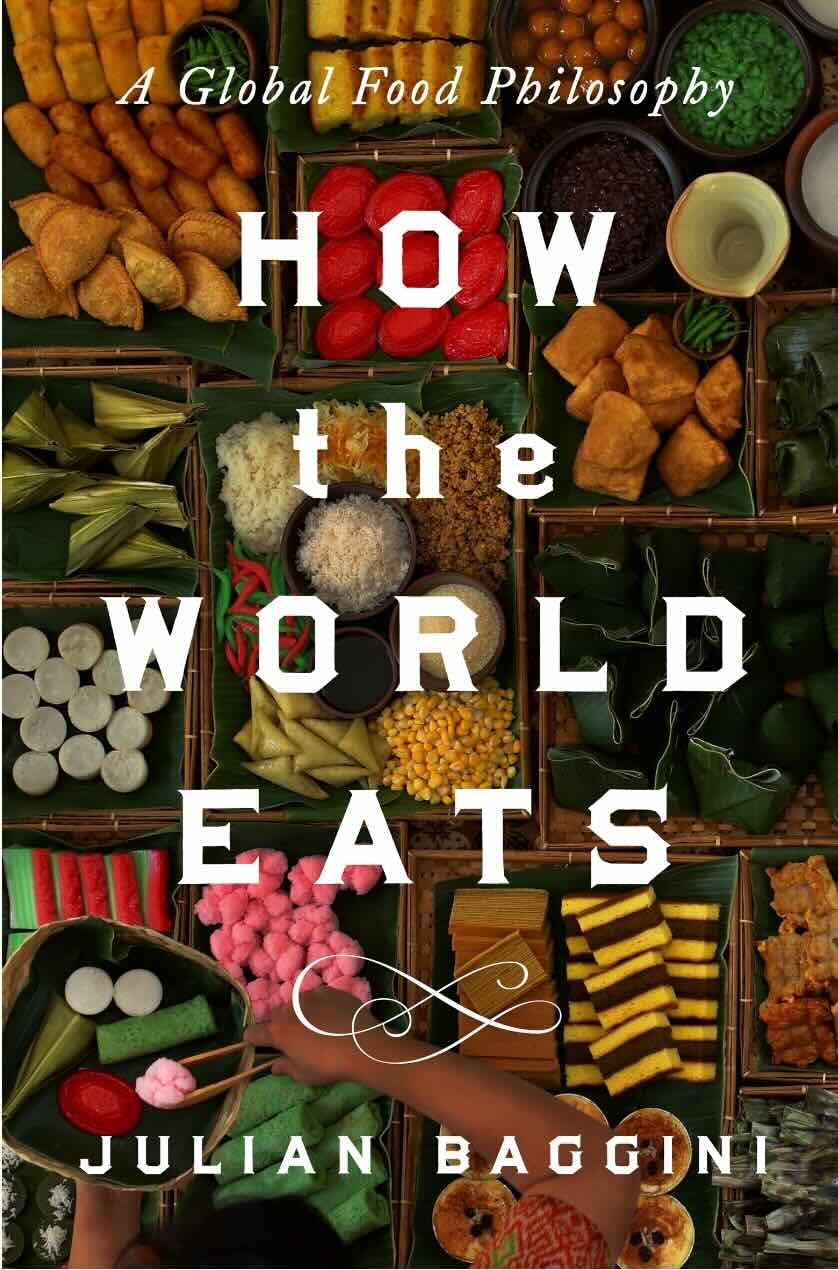Julian Baggini:
How the World Eats

Conclusion : A Global Food Philosophy
The food world is a remarkably complex and diverse ecosystem, a hybrid of nature and artifice. It has expanded to use more land and more resources to feed more people than ever before. Yet every informed observer of it, from whatever specialism, agrees that it is not looking healthy - for people, for the planet or for other animals. It is riddled with systemic injustices, with some getting fat while others starve, both literally and metaphorically. It has become a living hell for much, if not most, of the livestock within it. And it is environmentally unsustainable, requiring too many inputs while producing too many harmful outputs. Yet the principles that should govern our management of the food world are neither controversial nor hard to identify. They have been evident throughout our historical and global survey, as have the many vices that have blighted the food system. They can be brought together and boiled down into seven pillars of food wisdom.
......
Our food world is more full of holes than it is a harmonious holistic unity. Pollution leaks from it, externalities flow from it. Circularity is a virtue more honoured in the breach than it is in the observance. Pluralism is under constant pressure from the march of homogeneous, intensive industrialised farming, and from governments imposing or incentivising a small number of systems for cultivation, manufacture and distribution. Large companies dominate every sector of the food economy, their hegemony pushing out the plurality of small and local actors. Instead of being resourceful, we are depleting resources. Technology is too often rejected out of hand, as in the case of gene editing, or adopted too hastily and too much, as has been the case with synthetic fertilisers, broad-spectrum herbicides, insecticides and antibiotics. No honest observer could call the dominant systems of animal farming humane. It is too often pure doublespeak to talk of animal 'husbandry', given that word's association with care. Equitability is just as elusive, with farmers the world over receiving a pittance for crops and animal products that make retailers and manufacturers rich and provide cheap food for consumers living much more comfortable lifestyles. And no one could say that the food world is foodcentric when all the while it is built around trade in commodities, healthy eating advice is based on nutrients, and in many countries only a minority of meals are prepared with fresh, whole ingredients.
If the seven principles were followed, we would see major changes. We would have much higher standards of animal welfare. The power of large businesses to shape the food world in their own interests rather than in those of humankind would be curbed. The externalities of the food system would be properly measured and either paid for or not allowed to occur in the first place. Every country would have a proper land use framework to achieve the right balance between agricultural productivity, conservation and regeneration. Our diets would shift away from highly processed foods made from commodities towards ones based on whole foods. Farmers and farm labourers would receive a much fairer share of the price paid by consumers. And every citizen would have not only a voice in how the food world was shaped, but real power to use it.
